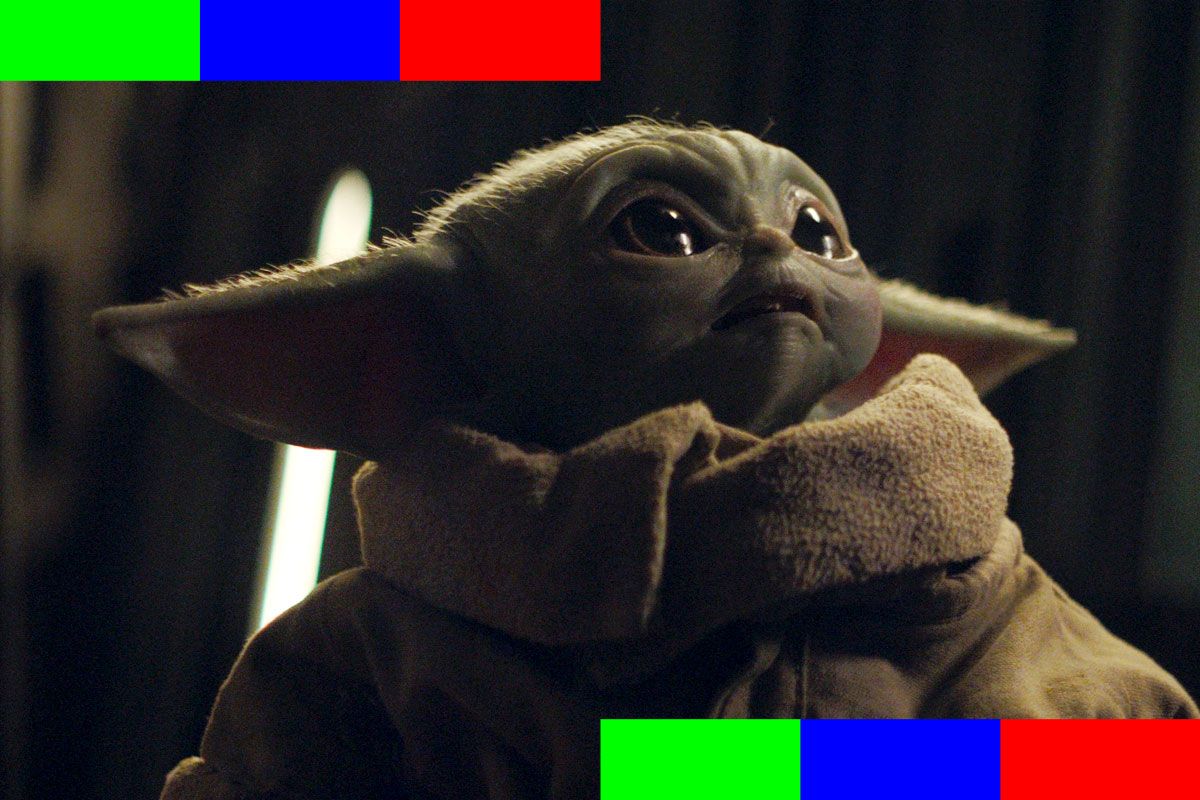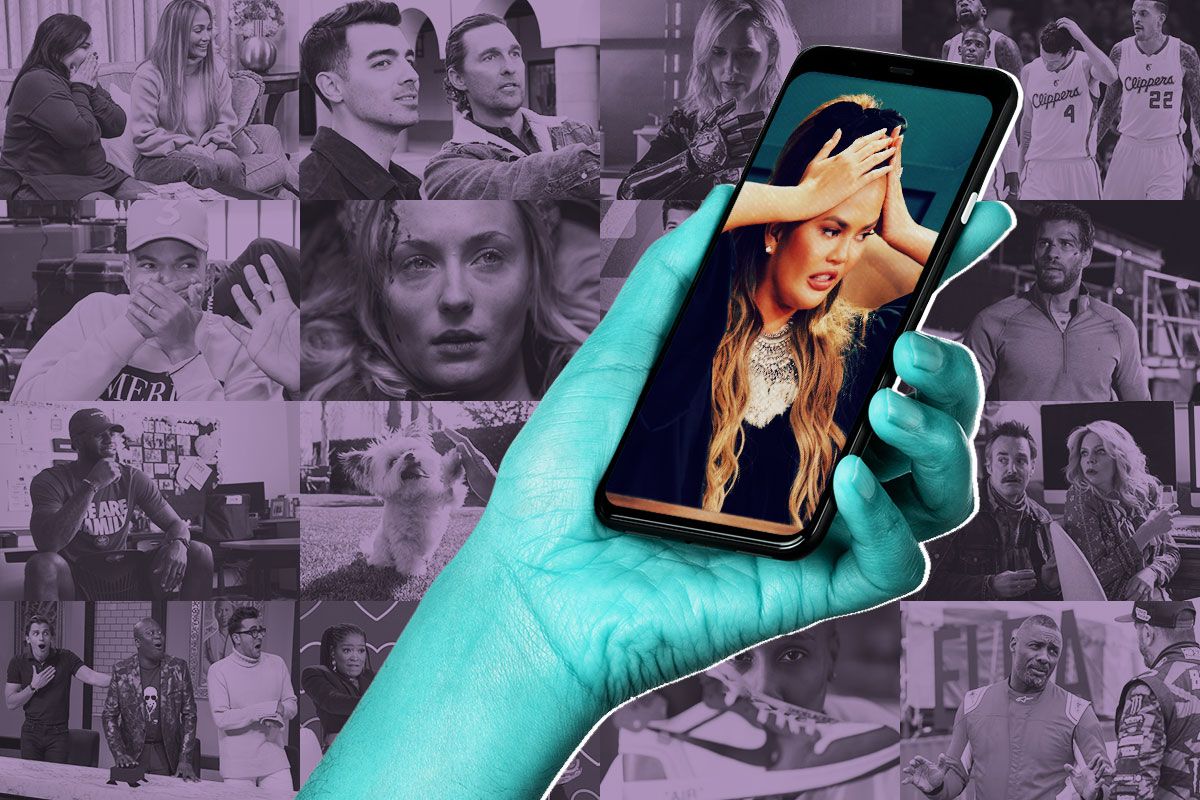 Last week, Netflix said it had added another 10 million–plus subscribers globally but that its growth will probably slow dramatically over the next few months. Wall Street focused on the latter bit of news and has punished the company’s stock in the days since. But the bigger picture remains: Netflix will almost certainly end 2020 with 200 million or more subscribers, making its status as the world’s most dominant entertainment platform even more undeniable. That isn’t stopping others from trying to slow its roll, of course, and the ways that some of Netflix’s newest rivals are going about that is the subject of this week’s newsletter. As always, thanks for reading, and a little program note: after this edition, Buffering is taking a bit of a summer break to refresh for a couple weeks and recharge. We’ll be back in August. –Joe Adalian |
 |  | | Photo-Illustration: Vulture and Disney+ | | |
| For the first time in forever, there are no big, totally new subscription video platforms preparing to launch. Yes, ViacomCBS is going to refresh (then relaunch) CBS All Access in the coming months, but that’s different from a full-fledged start-up. With Peacock signing on last week, the major players in the new TV universe — and Quibi — have all signed on. The great streaming expansion of 2019–20 is complete. |
| That milestone aside, it’s still way too early to even think about winners and losers. Those of us in the media sometimes like to call this a streaming “war,” but, in reality, these platforms aren’t so much fighting to knock off each other as they are trying to make sure there’s a place for them in TV’s new world order. It will likely take years to sort that all out. On the other hand, Apple TV+ and Disney+ will mark their one-year anniversaries in about three months, while Quibi is nearly four months old. It seems like a good time to at least start thinking about where things stand with these three platforms. |
| Since Peacock is still a peachick, and HBO Max is only eight weeks old, it’s a bit soon to assess their performances– though we did get a hint of how Max is doing this morning. Parent company AT&T said the new platform had boosted the combined number of HBO and HBO Max subscriptions to 36.3 million, a 5% gain vs. the 34.6 million customers HBO and HBO Now had at the end of 2019. (Linear HBO lost subscribers during the first six months of 2020.) These numbers met AT&T’s pretty conservative estimates for where Max would be in 2020, but during a call with investors, company CEO John Stankey conceded his team still had “work to do to” in order to get linear legacy HBO subscribers to convert to Max. |
| As for the other newbies, here’s one big question on my mind about each of them: |
| Will the pandemic finally start to slow down the spectacular early momentum for Disney+? |
| The Mouse House streamer has had a fairy-tale launch, doing just about everything right during its first few months of existence. The Mandalorian was a pop-culture smash from day one, giving Disney+ the sort of signature series other streamers wait years to find. Going all-in on putting the vast majority of Disney’s family-friendly content on the service, rather than just the highlights, has made the platform essential for anyone with kids (and anyone who really loves Disney). And the decision to make Hamilton a Disney+ original, rather than a 2021 theatrical release, was a marketing masterstroke that had the added advantage of being a really good thing to do for a society mostly locked down at home because of a killer virus. (Moving up the planned streaming debuts of Star Wars: The Rise of Skywalker and Frozen 2 was similarly savvy.) |
| Making all the right moves has paid off: 28 million homes signed up for Disney+ by February, a figure that grew to nearly 55 million by May. But going forward, it’s not impossible to imagine the continuing coronavirus crisis having a negative impact on Disney+. Given how the rest of the Disney ecosystem has already been upended by the pandemic,there’s bound to be something of a trickle-down effect. There are no Disney blockbusters in movie theaters right now, so the Disney+ promos the company likely would have attached to those films aren’t being used to drive sign-ups. Before launch, Disney was using its theme parks to hype Disney+; those theme parks have reopened, but with dramatically lower attendance. Similarly, Disney-owned TV networks, such as ABC and FX, won’t be nearly as useful as promo platforms this fall, given the reduced amount of first-run scripted programming they’ll likely be airing early for the rest of this year. |
| And then there’s the matter of the Disney+ original-production pipeline, which was disrupted by the virus. Next month was supposed to have seen the premiere of Marvel’s The Falcon and the Winter Soldier, but it has now been delayed, and it wouldn’t be surprising if it doesn’t show up until next year. Another Marvel series slated for this winter, WandaVision, may still make its December premiere, but after that, it could be months before another tentpole Disney franchise series is seen. |
| While these are all legit challenges, I think Disney+ is well positioned to overcome them and most likely will continue its strong growth, at least in the short term. For one thing, there will almost certainly be a season two of The Mandalorian later this year: It wrapped filming before the pandemic hit. Though it’s possible Disney+ could save the show for next year, that seems unlikely, since all those free one-year subscriptions Verizon handed out last year begin to expire in November, and Baby Yoda seems to be a great way to convince folks to stay. Another bit of good news for the streamer: While huge parts of the Disney marketing machine are weakened right now, Disney-owned ESPN could see record ratings in upcoming weeks, assuming sports broadcasts start returning to TV as planned. And, finally, the strength of the Disney movie library means Disney+ is less dependent on originals than other streamers. Many people will keep the service just so they can stream Lady and the Tramp (or, more likely, Marvel movies) whenever they want. It helps that kids are notorious for watching the same five things over and over (and over) again and may not care that there aren’t a bunch of new shows on Disney+. |
| Will Apple TV+ break through when Emmy nominations are announced next week? |
| While (some) critics were initially cool toward Apple’s first bunch of TV shows, something funny happened earlier this month: The Television Critics Association nominated The Morning Show for Outstanding New Program. It was the streamer’s only nod, but still, given the sharply divided reaction to the program (and Apple TV+ itself), it was a notable achievement. What Apple could use next is for Emmy voters to also take note of The Morning Show. More than any other new streamer — even HBO Max — Apple TV+ is marketing itself as the place for high-quality original content. Much the way Apple hardware is pitched to consumers as a premium, almost luxury experience, Apple wants audiences to think its TV shows are a step above regular TV. Awards-season validation would go a long way toward underscoring that message, which is why Apple has been spending heavily on Emmy advertising. |
| I truly have no idea how the nominations will shake out for Apple; I’ve never been good at predicting awards races. Kudos prognostication site Gold Derby seems to think The Morning Show has a good shot at a best-drama nom, while Jennifer Aniston and Billy Crudup are favored for acting nominations. If Apple is having a good day, it could also see Central Park squeeze into some of the animation categories; if it’s having a really good day, Emmy voters may remember that Oscar winner Octavia Spencer starred in Truth Be Told for the streamer. But honestly, as long as Apple doesn’t get completely shut out of the nominations, any sort of recognition will be a boost. |
| I am going to cheat and add in a bonus question for Apple, which is this: Does the company find a way to keep the service free for the tens of millions of current subscribers who got a year free by buying a new Apple product? I assume it will once again give away a year of service to folks who buy a new iPhone later this year. But for everyone else, does Apple just wait and see if people opt for paying $5 per month? Or does it maybe (finally) introduce an Apple bundle of services, offering Apple News, TV, Music and maybe iCloud storage for an irresistible price? |
 |  | | Illustration: Vulture and Photos Courtesy of Quibi | | |
| Okay, admittedly this is a loaded question; Jeffrey Katzenberg has said he has enough cash on hand to keep the mobile streamer afloat through next year. It’s also arguably premature, as Quibi has been around for less than four months. But what is clear is that the platform is struggling, and even its one big programming coup — landing the rights to the socially distant remake of The Princess Bride— seems not to have moved the needle all that much in terms of pop-culture relevancy. What’s more, Quibi is churning out so much content so frequently that much of it is simply being lost. The platform has been posting episodes of its 60 Minutes spinoff 60 in 6 to YouTube, and, embarrassingly, recent segments have failed to generate even 1,000 views. |
| Saturating the marketplace with programming makes sense when you’re Netflix in 2020 and have the world’s biggest platform, but somebody at Quibi forgot that Netflix made just three series when it got into originals back in 2013. Quibi obviously needed to do more than that — it couldn’t lease a library of classic shortform shows the way early Netflix thrived on Friends and The Office — but the strategy of dozens of new Quibi episodes every week isn’t working. |
| While it wouldn’t surprise me to wake up one morning to news that Quibi was calling it quits, if Katzenberg really does have a long runway of funding available to keep the service going another 18 months or so, he and Meg Whitman might be thinking of ways to reboot. Relaunching as a free service would seem to be out of the question, given how much Quibi has spent on programming, as well as the horrible advertising marketplace right now. But even if it found a way to go that route, there’s no guarantee it would work: Quibi gave away no-strings-attached three-month trials, and it didn’t seem to make a difference. I’ve sometimes thought the only way Quibi would survive is if it gets bought up by a bigger company, one which sees the value in its tech (the app really does work well, even if the whole Turnstyle thing is pretty pointless) or its programming library. Is this likely? Probably not! But Katzenberg has made more than a few big deals during his career, so maybe he can figure something out. |
| It’s also possible Quibi just tries to hunker down and wait out the worst of the pandemic. Yes, it’s silly to blame COVID-19 for all (or even most) of the platform’s problems. But it’s also not unreasonable to think that a once-in-a-century global crisis has absolutely hurt Quibi’s ability to connect with consumers. (Seriously, not delaying Quibi’s launch by at least six months was a tragically dumb move, though given how often Warner Bros. has now rescheduled Tenet, there’s plenty of dumb — or maybe it’s denialism? — going around Hollywood these days.) Considering how production of most new content is still on hold in the U.S., and may be for weeks to come, Quibi could start dramatically reducing the number of new scripted originals it releases and save them for an early-to-mid-2021 reboot of the service. It could also save money by canceling or putting on hiatus most of its daily unscripted news and information shows, unless there’s internal data suggesting those programs are driving engagement. I have no idea if essentially putting Quibi on ice until things are better in the rest of the world would make any difference. But continuing down the current path seems pointless. |
| Enjoying Buffering? Share this email with your network or subscribe now to get the newsletter in your inbox every week. |
| — Netflix’s Reed Hastings, saying his decision to promote content chief Ted Sarandos to co-CEO shouldn’t be interpreted to mean he’s preparing to leave the company. |
| |
|




